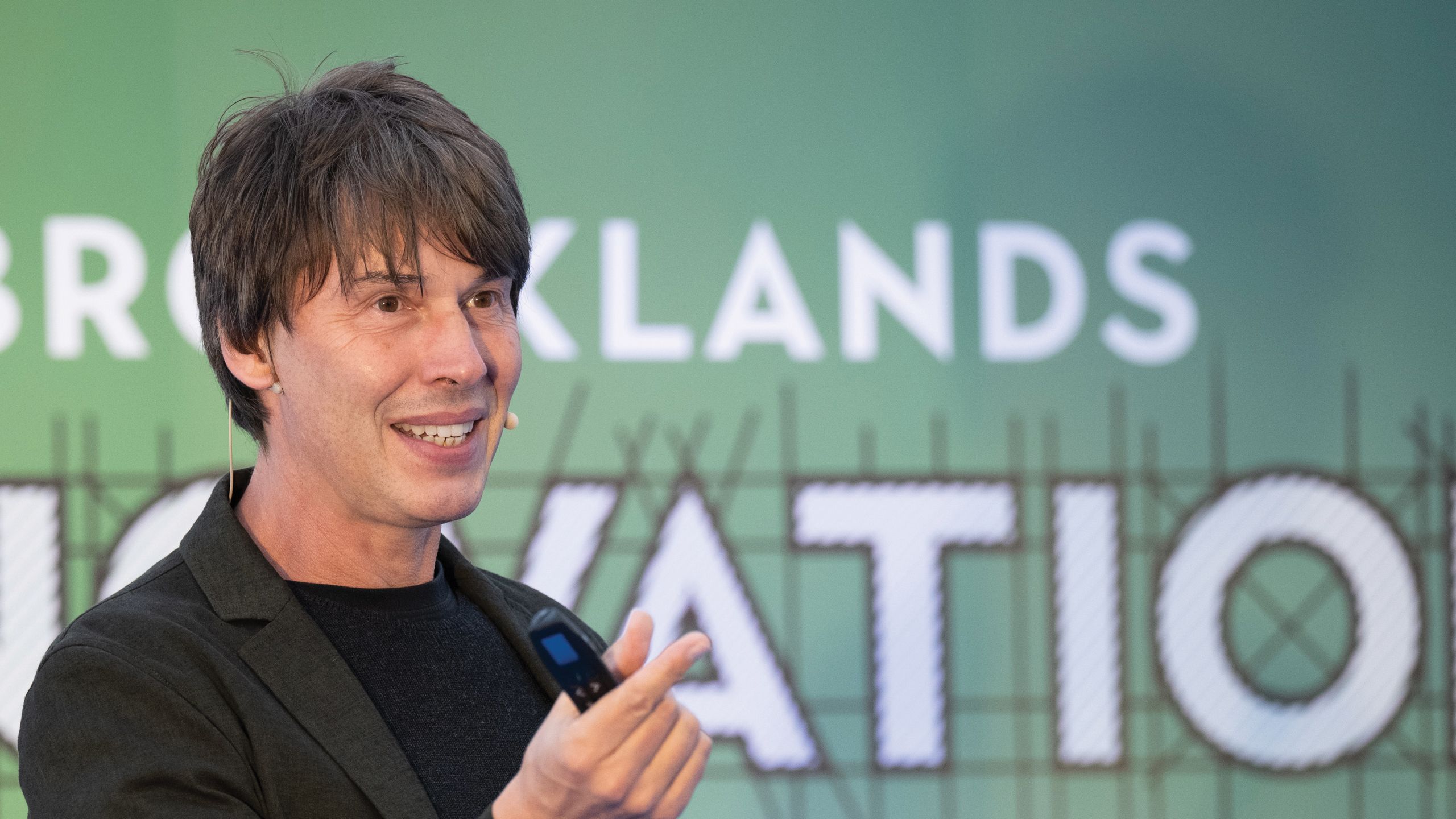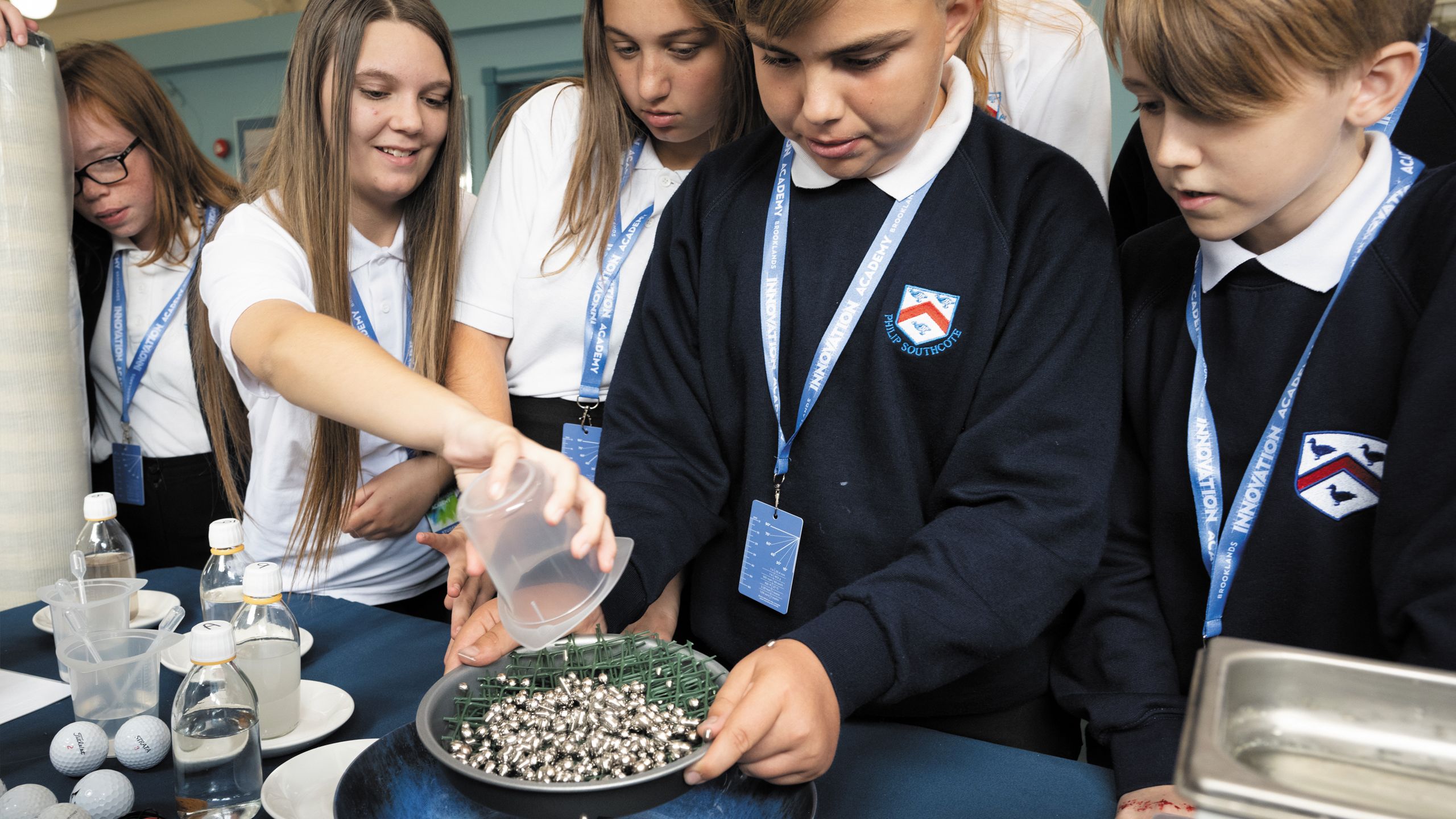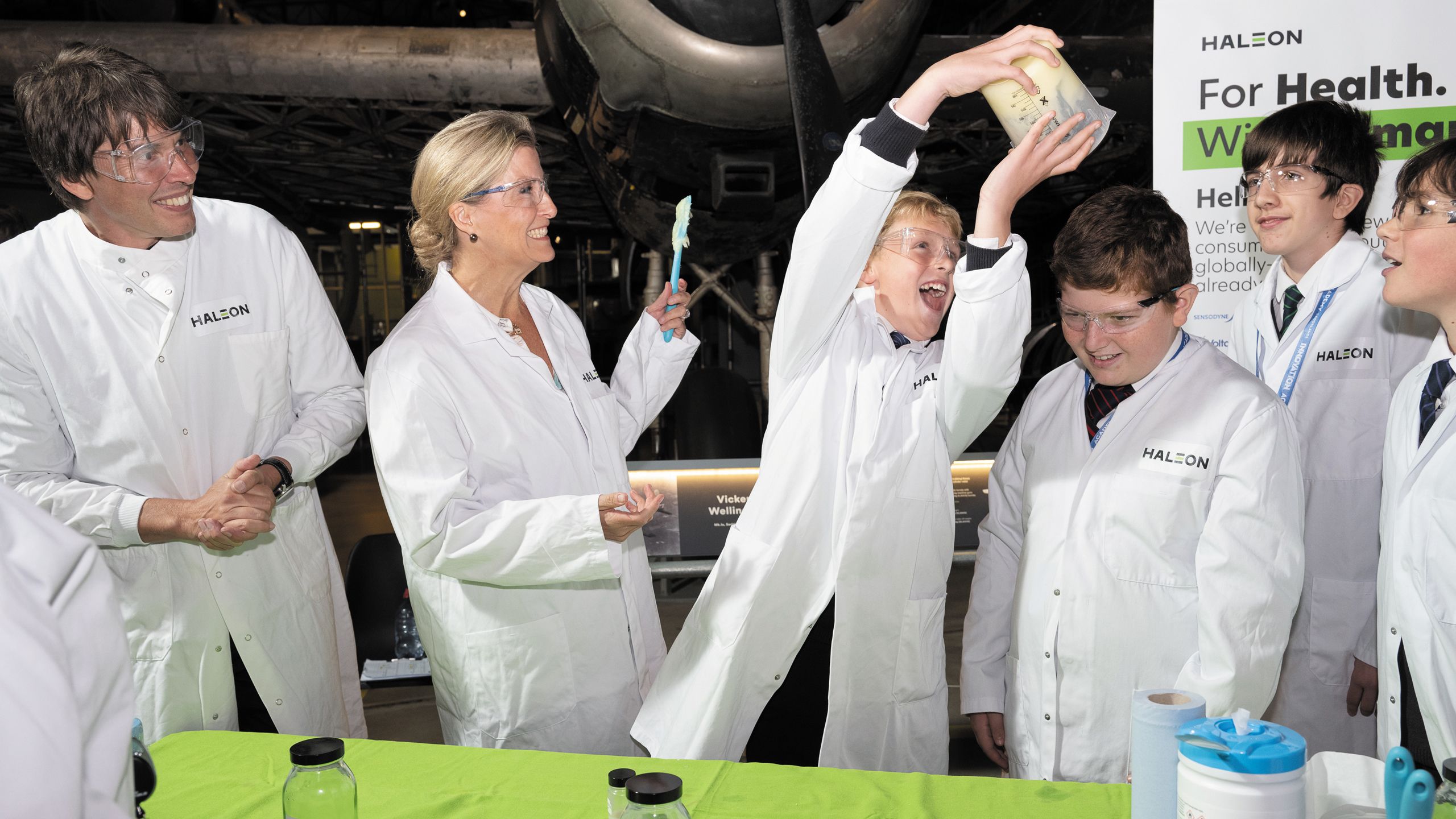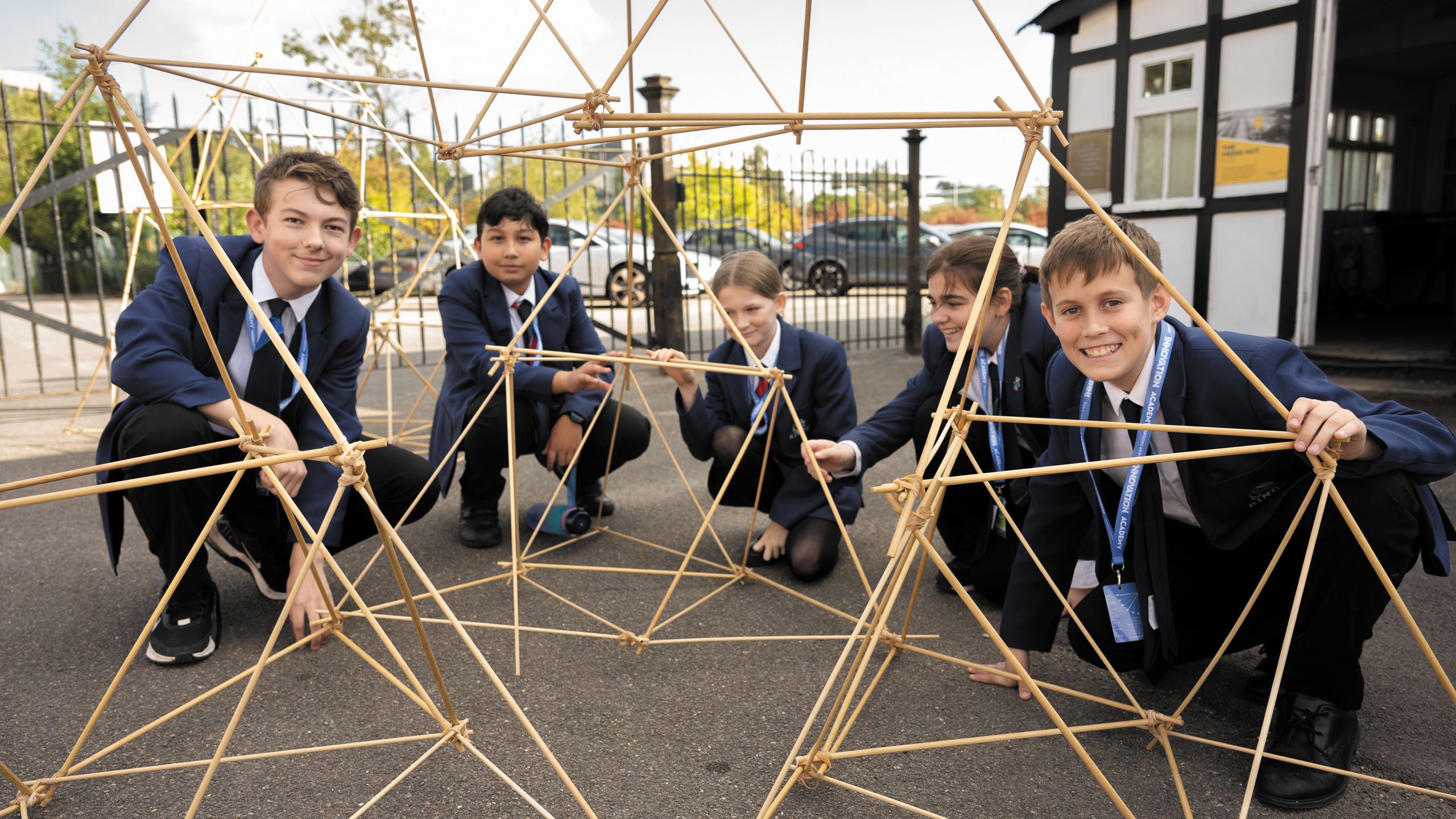CAREERS
SPACE TO LEARN
Sometimes play leads to discoveries you wouldn’t have imagined, says Professor Brian Cox

Professor Brian Cox is remembering a time he got shouted at. “I once said, almost facetiously, I’d just abolish examinations,” he says. A caveat comes immediately – he does not “technically” mean that. Then he adds: “But in a way I do.”
We are talking at Brooklands Museum in Weybridge, Surrey, about the inspiration that led him to a career in science. How can we foster an environmenåt in which today’s young people get those similar moments of inspiration?
“It seems to me that curiosity – ensuring that the process of learning about the world is a joyful experience – is key,” he says. In Carl Sagan’s Cosmos, for example – the spark that ignited Cox’s career in physics and astronomy – study of the universe was integrated into questions about society as a whole, such as the “idiocy” of nuclear war.
“That idea of emphasising the unity of knowledge, and the joy, just the sheer joy, of finding out about the world, not only science and engineering actually, but also the arts and music – making sure the whole thing is seen as one process – to me is really vitally important,” he says.
That perspective is perhaps under-represented in the exams system, which the BBC presenter and author suggests can be reductive and lack nuance. Speaking in early October, he has just started lecturing again at the University of Manchester, where he teaches relativity to first-year students.
“I always say to them… ‘You know when you understand something.’ There will be different routes to understanding, it will take you a long time sometimes. It takes me a long time, sometimes, and other times I get it quickly,” he says.
“It’s the same in engineering, of course. At some point you have to take responsibility for your own understanding. You don’t need a piece of paper saying you understand something.”
Another caveat comes quickly – he is not talking about maintenance engineers for jet engines, or presumably other safety-critical roles. “Someone’s got to take a judgement at some point and go ‘OK, this thing works’.”
‘Allow people some freedom... Allowing people that freedom for their mind to wander is the way that we built the modern world’

Black holes
Before the interview, Cox stalks about the sunny room with a touch of the old rockstar attitude, peering at photos and paintings on the whitewashed walls. We are on the first floor of the colonial-style Clubhouse at Brooklands, surrounded by the world’s first purpose-built motor-racing circuit. From above, the building and the race cars that once looped around it might have looked like an atom’s nucleus and its orbiting electrons, or a supermassive black hole and its galaxy.
The site is the centre of huge engineering efforts. It was home to aircraft engineering and manufacturing during the First and Second World Wars, with racing in between, and later development and production of civilian airliners. Now the museum’s exhibits include Concorde, the Barnes Wallis Stratosphere Chamber and an array of record-breaking cars.
It is an obvious choice, therefore, for an inspirational educational event. With the ambitious aim of making the UK “the best place to do science and engineering,” the Brooklands Innovation Academy is an annual one-day event held by the Science Summer School, which was co-founded by Cox and Lord Andrew Mawson OBE in 2012.
The event provides talks and workshops for 400 secondary-school pupils, hosted by organisations including McLaren F1, Airbus, the National Physical Laboratory, and other industry heavyweights. The day, also visited by the Duchess of Edinburgh, aims to inspire pupils aged 12-14 to follow careers in STEM.
Out of all the issues they face, climate change is likely to present those future careers with the most challenges – and opportunities for exciting and rewarding work. Should the gathered pupils focus on the issue if they want to pursue STEM careers?
“Whatever you’re learning about, it’s about enjoying it, and, if you enjoy it, you’ll be good at it and you’ll develop the skills, the toolkit to do things,” says Cox. “So I’d never say to someone ‘You should be doing this.’ I don’t think it’s the right thing to do to engineering students to say, ‘Well, this is your responsibility to work on clean energy,’ for example.”
That might mean focusing on seemingly “abstract” ideas, he says, which could end up being of fundamental importance. Stephen Hawking’s study of black holes in the 1970s and 80s, for example, might have seemed “pointless” to some at the time. But now the findings from that research are hugely influential, and could even inform technological progress on Earth.
“The study of black holes is now intimately related to problems we face in building quantum computers, astonishingly,” says Cox. “There’s an intimate overlap with how to protect the memory of quantum computers from errors, which is a big industrial challenge at the moment, an engineering challenge. It’s astonishing, right?
“So I’m just saying you never know. So I would never use the words ‘You ought to do this, or you ought to do that.’ What I want to say to young people is do whatever you enjoy doing. As long as you enjoy it, and you do some work, you’ll have a great time.”

Engineering playtime
If they do decide to focus on climate change, however, the young people at the event will have plenty of avenues to explore. Conventional renewable energy systems are still being improved and rolled out in ever-greater numbers, while less proven techniques such as carbon capture could become more prominent in future, or even more radical ideas such as geoengineering. Space-based solar power “is not a bad idea,” Cox says, thanks to the sheer amount of energy available from the Sun.
“Another example would be at my university of Manchester, the discovery of graphene, which is obviously a very tremendously promising material,” he says. “A lot of work has gone into graphene batteries, which is one of the big challenges, energy storage.
“Well Andre Geim, who I know, and Konstantin Novoselov, my colleagues at Manchester, he emphasised in his Nobel Prize-winning speech for discovering graphene… that he found in what he called playtime. He was messing about – but he was deliberately messing about.”
He continues: “He emphasised that this freedom, to allow your mind to be free at least some of the time, in any industry, to just play, sometimes leads to discoveries you wouldn’t have imagined.
“Graphene batteries might be part of the solution. We wouldn’t have had the material if we’d been focusing on doing R&D on battery technology that we have today.
“It’s a famous quote, isn’t it, that you would never have invented the electric light bulb if you invested a lot in R&D on candles.”
Some companies do give their engineers freedom to “play,” he says, with Google being a famous example. The approach should also be reflected in government handling of R&D, he adds.
“I’ve always had this argument with government about how you invest in R&D, because obviously there’s got to be some targeted R&D, focused R&D on particular problems, but there also has to be what’s often called ‘blue skies R&D’,” he says.
“Nobody – and I love saying this to science ministers – ‘Nobody, least of all you, minister’, knows where that next great discovery is going to come from. It’s impossible. All you can do is allow people some freedom. Obviously you can’t just let people do what they want 40 hours a week, or whatever it is, but allowing people that freedom for their mind to wander is the way that we built the modern world… the Wright brothers, they weren’t operating under a contract to improve transportation.”
‘I would never use the words “You ought to do this, or you ought to do that.” What I want to say to young people is do whatever you enjoy doing. As long as you enjoy it, and you do some work, you’ll have a great time’

Always ask questions
Earlier in the day, Cox speaks to the pupils about life, the universe, and everything. He projects an image of galaxies from the James Webb Space Telescope, showing light that travelled through the distorted fabric of space and time, and discusses the theory of the ‘inflationary multiverse,’ in which our universe might be one ‘bubble universe’ in an infinite number of bubble universes.
This theory is not yet backed up by evidence, but scientists think that we might one day be able to check it. Maybe, Cox says, it could be one of the pupils at the Brooklands Innovation Academy.
In the interview later that day, he moves on to progress in engineering. “It’s always tempting to think that we know enough, and as a civilisation we could probably stop and incrementally improve what we have,” he says. “But of course, at any time in the past, if you’d said that you would have been an idiot, because you would have missed everything – the jet engine, the computer. Now we’ve got, you know, artificial intelligence.”
He adds: “I don’t think anyone’s smart enough to see where the solutions are going to come from. And if you turn that around, then it means that we have to invest very widely in both engineering R&D and basic science R&D, which are interrelated, in order to have any chance of solving problems.”
The key thing, he tells pupils during the event, is to ask questions. It seems that applies not only to careers, but to science and engineering as a whole – and, if getting shouted at occasionally is the price of progress, it is probably a fair price to pay.
